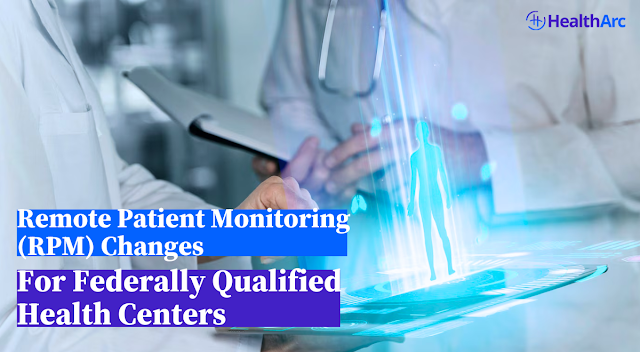How Care Coordination Ensures Improved Healthcare Delivery in Chronic Patients?
For patients with chronic illnesses, care coordination is crucial to delivering high-quality treatment. Collaboration and communication among healthcare professionals are essential to ensuring that patients' care needs are met and that they receive safe and effective treatment.
The process through which medical professionals work together to share information and deliver high-quality treatment to patients is called care coordination. Care coordination helps patients by ensuring that everyone involved in their care—from caregivers to doctors, nurses, and therapists—is aware of their needs, resulting in safe and effective treatment.
For several reasons, effective care coordination is crucial in the healthcare sector, including:
Primary, emergency, and specialty care institutions are dispersed and operate differently across the US.
Referral staff must go through a variety of processes and information lists that affect the effectiveness of care.
The events that occurred during a referral or emergency visit are rarely communicated to primary care physicians, and specialists may not receive comprehensive justifications for the patient's referral or information regarding previously completed tests.
Patients are frequently left perplexed by the rationale for their primary care physician's referral to a specialist, the scheduling procedure, and the next steps after their consultation.
Care coordination is essential to prevent situations where therapeutic approaches and treatment plans suggested by many healthcare practitioners may conflict and perhaps lead to adverse health consequences.
Medical or therapy errors are more likely to occur when doctors communicate ineffectively or partially, which may lead to patients undergoing needless repeated testing. Patients with serious medical conditions or many illnesses are more prone to experience complications.
The Best Methods To Deliver Care Coordination
Care coordination is now much easier thanks to the increasing usage of Electronic Health Records (EHRs). An online portal makes it simple for providers to view and amend a patient's medical history. By establishing an Accountable Care Organization (ACO), doctors can help with coordination and communication when treating patients with specific conditions or in a specific region.
In addition, programs or models that enhance care coordination, such the CMS Innovation Center and the Medicare Shared Savings Program, can be advantageous to healthcare providers.
These care coordination best practices ensure that medical staff can work together to provide chronically sick patients with the appropriate care and treatment.
How Does Care Coordination Benefit from Remote Patient Monitoring?
One recent technological advancement that is greatly improving care coordination is remote patient monitoring. RPM has grown in popularity as a substitute for in-clinic patient care in a variety of care settings in recent years.
RPM gives medical personnel the critical data they need to evaluate the patient's status by using remote monitoring devices that are available in the patient's home. While remotely analyzing patients' vital signs and diagnosing symptoms, these specialists can easily converse with patients and each other.
This partnership contributes to the development of a care coordination strategy that enhances patient outcomes. Let's look at how some of RPM's key features—like education, prescription management, remote vitals monitoring, and virtual communication tools—help to enhance care coordination.
Remote Vitals Monitoring: Patients who need ongoing care, such those with diabetes, heart disease, or hypertension, can benefit from personalized treatment plans thanks to the constant monitoring that RPM provides. It informs and notifies clinicians in the case of a high-risk circumstance so they can act quickly and adjust the treatment plan as needed.
Virtual Communication Tools: Healthcare providers can use virtual communication technologies to stay in touch with patients and one another in order to provide effective care coordination. Virtual appointments allow medical professionals to check up on their patients from a distance. In addition to phone conversations or video chats, patients can text care providers.
Medication Management and Education: RPM empowers patients to take a more active role in their care. Enhancing patients' health literacy helps them manage their symptoms and medication adherence, communicate with healthcare professionals more effectively, make informed decisions, and much more.
How HealthArc Can Assist You in Organizing Care Coordination
Care coordination is essential to giving patients high-quality treatment. By using remote vitals monitoring, virtual communication tools, education, and medication administration, healthcare providers can employ RPM to create customized treatment regimens. Care coordination is becoming better and more efficient as a result of all these advancements.
With the help of HealthArc's clinical experience, care coordination services enable physicians to make better health decisions more quickly, which raises the standard of care.



%20Changes%20for%20Federally%20Qualified%20Health%20Centers%20(1).png)
Comments
Post a Comment